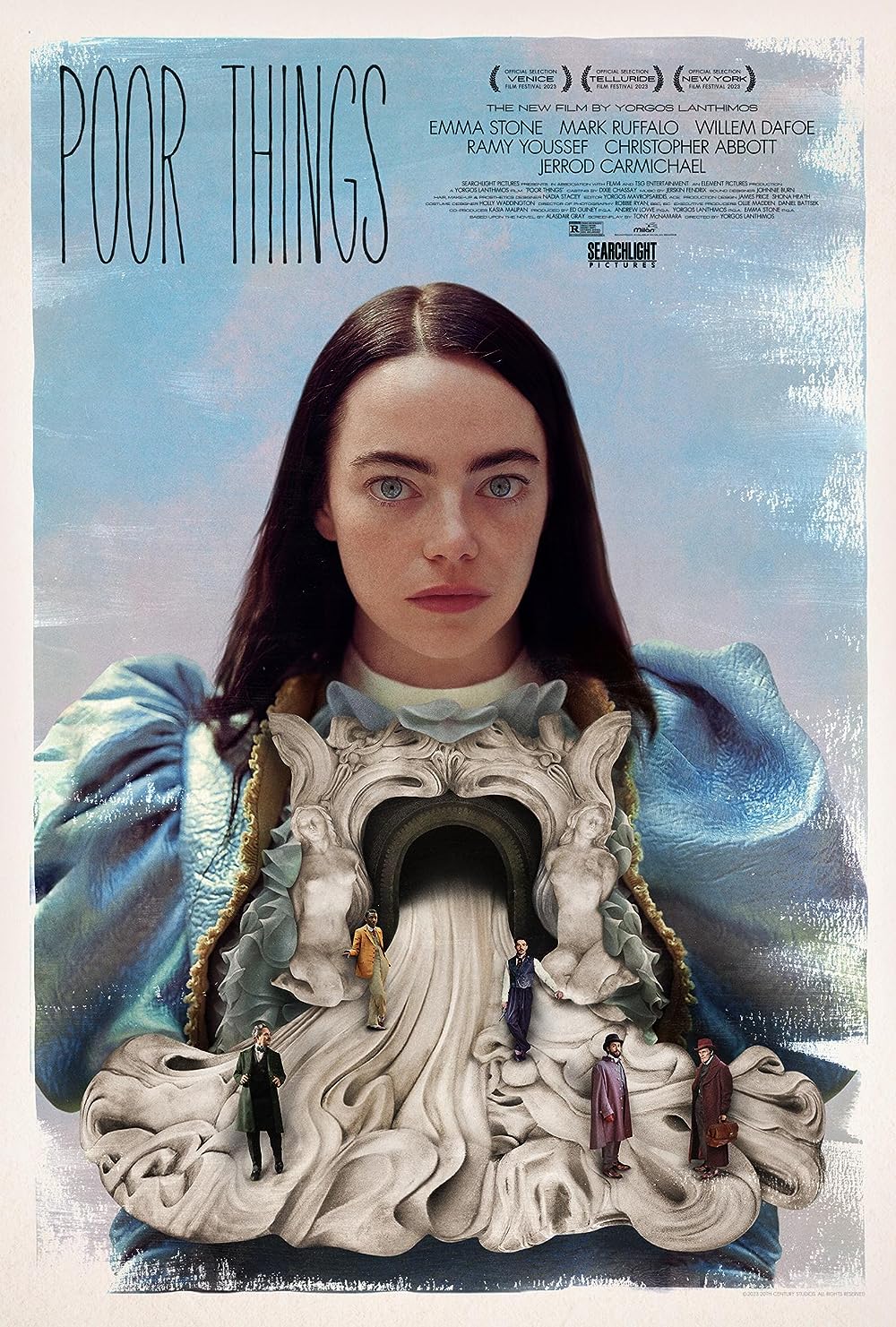Film Review: Yorgos Lanthimos’ Poor Things

Rating: 4 1/2 out of 5 Stars
Robin Woitesek ’24
Staff Writer
rudolphwoitese@lakeforest.edu
Yorgos Lanthimos’ latest film tells the story of Bella Baxter, a woman who’s been brought back to life by an unorthodox scientist. Based on the Alasdair Gray novel of the same name, this film chronicles Bella’s experiences trying to navigate the complex world around her in both its amazement and horrors. As she does, Bella realizes what it means to be a human and more importantly, how to find one’s own liberation in the process.
This film is essentially a feminist retelling of Frankenstein and as such it explores the themes of ambition, pursuit of knowledge, prejudice, injustice, and the societal structures therein much like the Mary Shelley novel. What sets this film apart from another simple retelling is that Bella Baxter’s journey doesn’t end in tragedy nor is she doomed to be destroyed by the world that created her. Rather, this film is about Bella’s personal transformation into womanhood and breaking free of socio-cultural constraints that try to impose its own perceptions of how to be. In doing so, not only is Yorgos Lanthimos making clear commentary on how women are continuing to be societally restricted on what they can do and how the power of one’s own freedom can be a path to unapologetic independence.
The most striking aspect of this film is its visual style as it’s not only very unique in its set design, as the set pieces are wonderfully weird, but the use of both black and white as well as color makes this film stand out. The use of color not only directly relates to Bella’s geographical journey as she explores the dark and colorful parts of the world, but more importantly the cinematography compliments the personal change that Bella goes through. Initially a lot of wide-shot and fish-eye lenses were used which are meant to be Bella’s wide-eyed perception of the world around her which then becomes more stationary and tighter visually as she begins to understand the kind of person she wants to become. She begins the film as a naïve, wide-eyed dreamer and by the end of the film she’s a liberated woman in Victorian-era London whose self-actualization is her biggest strength.
In all, this film is not only one that everyone should go and see to experience the wonderfully weird visual style firshand, but more importantly explore the human condition through the eyes of what we all once used to be; wide-eyed dreamers. Bella Baxter’s ability to go through life without shame and discovering what the world has to offer is not only a refreshing take of one of the most famous stories of the 19th century, but updates it to be culturally relevant for the many of us who are still trying to figure out our way in the world. Regardless of where life takes us, hopefully we’ll be able navigate our paths with the originality, wit, and unrelenting free spirit that Bella’s journey has shown us is possible.
Poor Things is currently in theaters.
